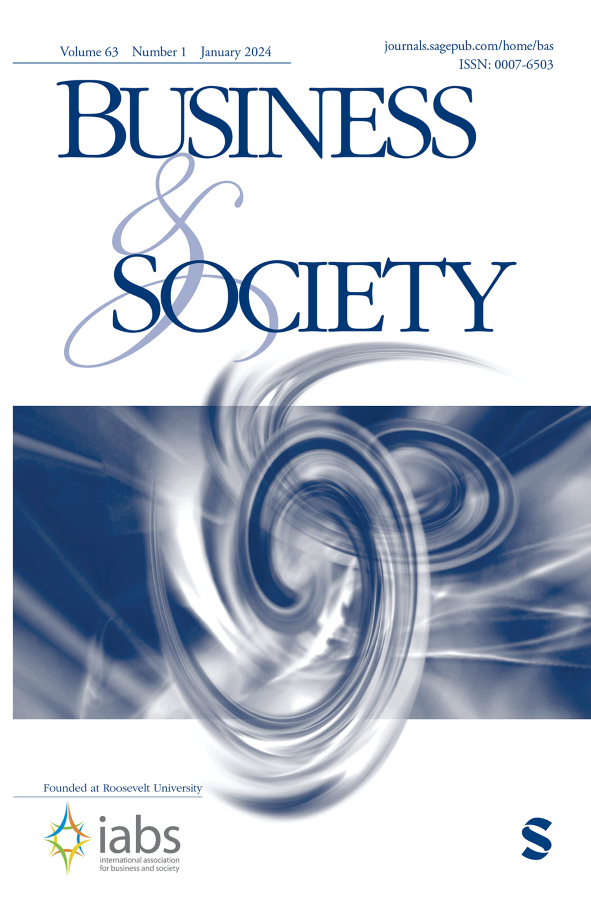通行证、学校和提示:通过日常实践再现社会不平等
IF 6
3区 管理学
Q1 BUSINESS
引用次数: 2
摘要
社会不平等是如何通过日常实践再现的?在这篇评论中,我们利用墨西哥城的地理背景,认为社会不平等是由精英的“阶级工作”维持的。具体而言,我们讨论了(1)城市规划如何明确阶级界限,(2)私立学校教育如何再现阶级界限,以及(3)小费如何防止阶级界限的破坏。本文章由计算机程序翻译,如有差异,请以英文原文为准。
Tolls, Schools, and Tips: The Reproduction of Social Inequality Through Day-to-Day Practices
How is social inequality reproduced through day-to-day practices? In this commentary, we use the geographical context of Mexico City to argue that social inequality is maintained by “class work” of elites. Specifically, we discuss how (1) urban planning crystallizes class boundaries, (2) private school education reproduces them, and (3) tipping prevents their disruption.
求助全文
通过发布文献求助,成功后即可免费获取论文全文。
去求助
来源期刊

Business & Society
BUSINESS-
CiteScore
14.80
自引率
11.40%
发文量
56
期刊介绍:
Business & Society publishes original research, book reviews, and dissertation abstracts relating to business ethics, business-government relations, corporate governance, corporate social performance, and environmental-management issues. Manuscripts relating to the field of business and society in general are also published. Submissions of theoretical/ conceptual work as well as empirical studies are encouraged. Business & Society is the first peer-reviewed scholarly publication devoted exclusively to the field of business and society, and it is the official journal of the International Association for Business and Society (I.A.B.S.), the only independent professional association dedicated to business and society teaching and research.
 求助内容:
求助内容: 应助结果提醒方式:
应助结果提醒方式:


